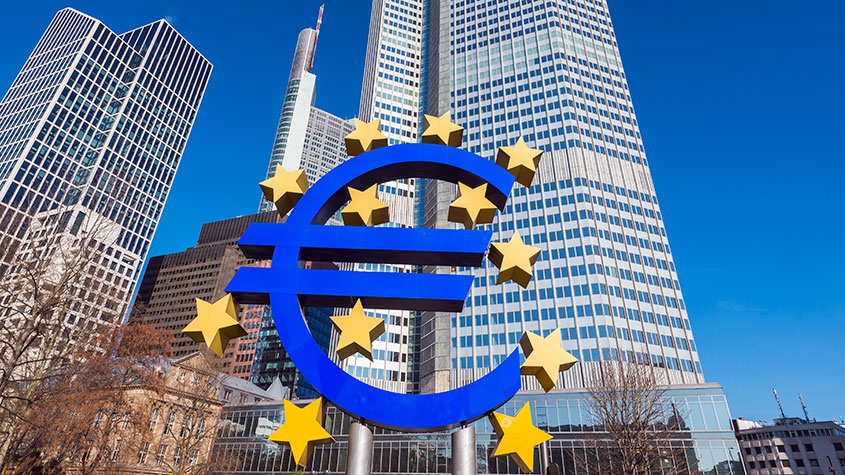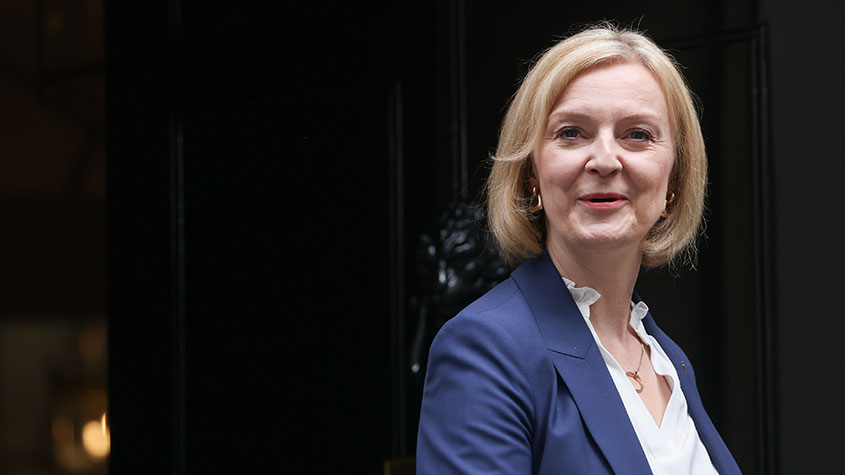Five reasons why Brexit would be good for the UK economy
The 'In' campaign likes to use the economy to make its case, says Bengt Saelensminde. But here are five economic reasons for why Britain should leave the European Union.
Get the latest financial news, insights and expert analysis from our award-winning MoneyWeek team, to help you understand what really matters when it comes to your finances.
You are now subscribed
Your newsletter sign-up was successful
Want to add more newsletters?

Twice daily
MoneyWeek
Get the latest financial news, insights and expert analysis from our award-winning MoneyWeek team, to help you understand what really matters when it comes to your finances.

Four times a week
Look After My Bills
Sign up to our free money-saving newsletter, filled with the latest news and expert advice to help you find the best tips and deals for managing your bills. Start saving today!

While the vote on Brexit may not be coming until 2017, campaigning by both the in and the out camps is already well under way.
Today, I'd like to stick my oar in. And given that the in' lot like to use the economy as an argument for staying with the European Union, I'll continue in that vein.
For now, although they're equally important areas for debate, we'll ignore the other ramifications of EU membership in areas such as justice, migration, labour directives and even climate change and defence. We'll just focus on the economics.
MoneyWeek
Subscribe to MoneyWeek today and get your first six magazine issues absolutely FREE

Sign up to Money Morning
Don't miss the latest investment and personal finances news, market analysis, plus money-saving tips with our free twice-daily newsletter
Don't miss the latest investment and personal finances news, market analysis, plus money-saving tips with our free twice-daily newsletter
After all, last week the Confederation of British Industry said that Brexit would amount to a loss of some £3,000 for every household in the country. Former head of M&S Lord Stuart Rose, who chairs the Britain Stronger in Europe campaign, was downright scathing about the outies': "To claim that the patriotic course for Britain is to retreat, withdraw and become inward-looking is to misunderstand who we are as a nation."
But I put it that if there's any "misunderstanding", it's on the part of the in' campaign. And I suspect it's a deliberate misunderstanding. As an outie', with a long history of dealing with and even living in continental Europe, I can tell you that wanting out has nothing at all to do with being inward-looking.
I believe that releasing Britain from the clutches of the EU will help foster a far stronger economy. An economy that is outward-looking. One that is free to trade both with the EU and outside of the EU.
So here are five key economic reasons for backing Brexit.
The EU does not help to protect key strategic UK businesses
Over recent weeks, we've heard a lot of awful news from the UK's steel industry. As anyone involved with the commodities market knows, things have been on the decline for a few years now. China is slowing down. Key commodities that were in shortage have swung into surplus. China is selling as much steel as it can on international markets, making it all but impossible for the Brits to compete.
These are cyclical industries. The key is to be able to hold your breath during the downturns. Trouble is, the EU stands in the way of the government helping this strategic industry through the lean times that's because EU rules ban government aid for business. So they cannot help, even if they wanted to.
Now, I'm not a huge fan of government intervention. But on occasion, there may be a solid case for state aid for strategic industries (steel production is crucial to defence, for example), which, once closed are extremely difficult to re-establish.
The EU is less important than it used to be
When Britain joined the EU, it made up some 37% of global GDP. Today it's more like 20%.
To some extent that's because emerging markets have grown so rapidly. But it's worth remembering that this relative outperformance of emerging markets is likely to continue for many decades to come. Meanwhile, Europe's sclerotic pace of growth looks set to fester on too.
As an outie' I'm encouraged by our growing trade with the wider world. Despite the shackles of the EU, trade with the rest of the world is growing far faster than EU internal trade.
The trouble is that leaving the EU in charge of doing our negotiating with the outside world is holding back our growth, which brings me to my next point.
MoneyWeek's latest issue: Why we're backing Brexit

We love Europe the continent, the food, the culture. But the EU is an undemocratic leviathan. Britain should leave, says Charlie Morris.
The EU's disparate, conflicting goals hold us back
The EU is a huge entity, with many conflicting aims. It's a political football match with all 28 teams on the pitch at the same time. As a result, EU trade talks with the US, Japan, India and the UAE have practically ground to a halt.
As part of my business dealings (as an importer), I've been involved in discussions with trade commissioners from two South American countries at their London embassies. These are the guys that are actually involved in setting terms of international trade.
You'll often hear the in' camp claim that we need to be part of a strong EU bloc to help negotiate favourable terms of trade with these sorts of guys. They say that Britain is too small to go it alone.
Absolute poppycock and balderdash.
On its own, Britain could strike up meetings and finalise trade deals in an instant. And these would be deals that allow us to set low import tariffs on things that aren't made in Britain, while setting higher tariffs on cheap competitor products.
Setting import and export tariffs is hugely important to Britain's economic interests. It should not be delegated to an incompetent team from the EU a team of bureaucrats pulling in all sorts of different directions.
Britain could become a magnet for trade
You don't need me to tell you that Britain was once the major global trading hub. For sure, that was largely down to its empire. But given the benefits of re-establishing trade with the wider world, it's not inconceivable that Britain slowly, but surely recovers some of what was lost.
Even from outside the EU, Britain could actually become a stepping stone for worldwide trade into the EU. I'm not joking. After all, given that Britain imports more from the EU than we export to them, we'll undoubtedly forge a reasonable trade agreement. And even if the EU does slap on some trade tariffs, our position as an island nation within Europe (not the EU!) will have key attractions.
Britain will have the ability to harmonise trade to import from the wider world, and add value to products so that they'd be ready for resale into the EU.
I can think of several serious business opportunities, should Britain wrest control back from Brussels. Being outside the EU may not actually be detrimental to trading with it.
Some ideas are just bad
It's a general principle of economics that trade is good. That's why Britain joined the EU in the first place.
Another general principle of economics is that central planning (you can call it a socialist state) is bad. And it appears to me that the EU has gradually changed from being a trade enhancer, to a trade obstacle from a capitalist state, towards a planned socialist state.
Take Australia, Korea and Japan. None of these successful economies are part of a wider trading bloc. Why would they need to be? Why not trade and negotiate individually with whomever they choose?
I know that the rationale for being part of the EU runs wider than pure economic concerns. I know that Brexit would not be without its niggles and strains.
But it just strikes me that the benefits of exit outweigh the downside risks. And it also strikes me that the in' lobby are keen to spread misinformation on the economic cost of exit.
As far as I'm concerned, as a beacon of capitalism at the edge of Europe, Britain has nothing to fear from Brexit.
But I'd love to hear your thoughts below.
Get the latest financial news, insights and expert analysis from our award-winning MoneyWeek team, to help you understand what really matters when it comes to your finances.
Bengt graduated from Reading University in 1994 and followed up with a master's degree in business economics.
He started stock market investing at the age of 13, and this eventually led to a job in the City of London in 1995. He started on a bond desk at Cantor Fitzgerald and ended up running a desk at stockbroker's Cazenove.
Bengt left the City in 2000 to start up his own import and beauty products business which he still runs today.
-
 Can mining stocks deliver golden gains?
Can mining stocks deliver golden gains?With gold and silver prices having outperformed the stock markets last year, mining stocks can be an effective, if volatile, means of gaining exposure
-
 8 ways the ‘sandwich generation’ can protect wealth
8 ways the ‘sandwich generation’ can protect wealthPeople squeezed between caring for ageing parents and adult children or younger grandchildren – known as the ‘sandwich generation’ – are at risk of neglecting their own financial planning. Here’s how to protect yourself and your loved ones’ wealth.
-
 No peace dividend in Trump's Ukraine plan
No peace dividend in Trump's Ukraine planOpinion An end to fighting in Ukraine will hurt defence shares in the short term, but the boom is likely to continue given US isolationism, says Matthew Lynn
-
 Europe’s new single stock market is no panacea
Europe’s new single stock market is no panaceaOpinion It is hard to see how a single European stock exchange will fix anything. Friedrich Merz is trying his hand at a failed strategy, says Matthew Lynn
-
 Britain’s inflation problem
Britain’s inflation problemInflation in the UK appears to be remaining higher for longer when compared with similar rich countries. Why? And when can we expect a return to normal? Simon Wilson reports.
-
 Eurozone inflation hits 10.7% in October
Eurozone inflation hits 10.7% in OctoberNews Inflation across the eurozone hit 10.7% in October. What does it mean for your money?
-
 A forgotten lesson on the dangers of energy price caps
A forgotten lesson on the dangers of energy price capsAnalysis Liz Truss’s proposed energy price cap is an ambitious gamble. But a similar programme in Spain ended up being a fiasco, say Max King and Tom Murley. Here, they explain why Truss’s plan could be doomed to failure.
-
 Don't be scared by economic forecasting
Don't be scared by economic forecastingEditor's letter The Bank of England warned last week the UK will tip into recession this year. But predictions about stockmarkets, earnings or macroeconomic trends can be safely ignored, says Andrew Van Sickle.
-
 The wolf returns to the eurozone’s door
The wolf returns to the eurozone’s doorEditor's letter The eurozone’s intrinsic flaws have been exposed again as investors’ fears about Italy’s ability to pay its debt sends bond yields soaring.
-
 Eurozone economy heads for paralysis
Eurozone economy heads for paralysisNews Record high energy prices, the threat of recession in Germany and squabbling in Italy's government has left the eurozone fighting fires on all fronts.